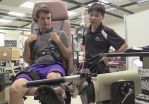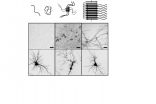(Press-News.org) Washington, D.C., October 1, 2014—Use of specific dietary supplements can have a positive effect on health care costs through avoided hospitalizations related to Coronary Heart Disease (CHD), according to a new article published in the Journal of Dietary Supplements(1). The article, "From Science to Finance—A Tool for Deriving Economic Implications from the Results of Dietary Supplement Clinical Studies," published by Christopher Shanahan and Robert de Lorimier, Ph.D., explores a potential cost-benefit analysis tool that, when applied to a high-risk population (U.S. adults over 55 with CHD) who take dietary supplements, specifically omega-3 fatty acid or B vitamin dietary supplements, can result in the reduction of the individuals' odds of experiencing a costly medical event.
Hospitalizations for all U.S. adults over the age of 55 with CHD cost the United States over $64 billion in 2012(2), and the amount spent on the treatment of CHD, rather than the prevention, is burdensome on both the societal and individual levels—and only expected to increase, according to the article. "One way to control the burden of CHD costs is to minimize the number of costly inpatient procedures," the authors said. "Many dietary supplement products are available in the market today that have been shown to have positive effects on heart health through associated clinical studies...Thus, the potential decrease of total health care expenditures in the United States is a strong argument for the daily use of dietary supplements."
According to the authors' analysis of all U.S. adults over the age of 55 diagnosed with CHD:
If every high-risk person in the target population were to take omega-3 supplements at preventive intake levels daily, there would be an average of $2.1 billion in avoided expenditures per year and a cumulative of $16.5 billion in avoided expenditures between 2013 – 2020
If every high-risk person in the target population were to take B vitamins at preventive intake levels daily, there would be an average of $1.5 billion in avoided expenditures per year and a cumulative of $12.1 billion in avoided expenditures between 2013 – 2020
"This is a relatively low-technology, yet smart, approach that can be used by consumers, physicians, employers, and policymakers as a means to reduce personal and societal health care costs," the authors concluded.
The cost-savings model presented in this article was first presented in a report, "Smart Prevention—Health Care Cost Savings Resulting from the Targeted Use of Dietary Supplements," in which Frost & Sullivan conducted a systematic review of scientific research in peer-reviewed, published studies that looked separately at relationships between omega-3 supplement intake and the risk of a CHD-attributed event, and B vitamins intake and the risk of a CHD-attributed event. The firm then projected the rates of CHD-attributed medical events across U.S. men and women over the age of 55 with CHD and applied a cost benefit analysis to determine the cost savings if people in this targeted population took omega-3 supplements or B vitamin supplements at preventive intake levels. The report was funded through a grant from the CRN Foundation.
INFORMATION:
The article published in the Journal of Dietary Supplements can be found here. The full Frost & Sullivan economic report and accompanying materials, including omega-3 supplement and B vitamin supplement infographics, are available for free at http://www.supplementforsmartprevention.org.
1 Shanahan, C. and de Lorimier, R. (2014). From Science to Finance—A Tool for Deriving Economic Implications from the Results of Dietary Supplement Clinical Studies. Journal of Dietary Supplements.
2 Agency for Healthcare Research and Quality. (2010). Medical Expenditure Panel Survey (MEPS). Retrieved February 2013, from http://meps.ahrq.gov/mepsweb/
Shanahan, C. and de Lorimier, R. (2013). Smart Prevention—Health Care Cost Savings Resulting from the Targeted Use of Dietary Supplement. An Economic Case for Promoting Increased Intake of Key Dietary Supplements as a Means to Combat Unsustainable Health Care Cost Growth in the United State. Frost & Sullivan. http://www.frost.com/sublib/display-market-insight.do?id=285115104
Note to Editor:
About the CRN Foundation: The CRN Foundation was established in 2009 as a non-profit 501(c)(3) organization for the purpose of educating people about the beneficial, safe and responsible use of dietary supplements and their ingredients as part of a culture of wellness.
About the Council for Responsible Nutrition: The Council for Responsible Nutrition (CRN), founded in 1973, is a Washington, D.C.-based trade association representing 150+ dietary supplement and functional food manufacturers, ingredient suppliers, and companies providing services to those manufacturers and suppliers. In addition to complying with a host of federal and state regulations governing dietary supplements and food in the areas of manufacturing, marketing, quality control and safety, our manufacturer and supplier members also agree to adhere to additional voluntary guidelines as well as to CRN's Code of Ethics. Visit http://www.crnusa.org. Follow us on Twitter @crn_supplements and @wannabewell and on Facebook.
About Frost & Sullivan: Frost & Sullivan, the Growth Partnership Company, works in collaboration with clients to leverage visionary innovation that addresses the global challenges and related growth opportunities that will make or break today's market participants. For more than 50 years, they have been developing growth strategies for the global 1000, emerging businesses, the public sector and the investment community.
New article shows daily use of certain supplements can decrease health-care expenditures
2014-10-01
ELSE PRESS RELEASES FROM THIS DATE:
FDG-PET/CT shows promise for breast cancer patients younger than 40
2014-10-01
Reston, Va. (October 1, 2014) – Researchers at Memorial Sloan Kettering found that PET/CT imaging of patients younger than 40 who were initially diagnosed with stage I–III breast cancer resulted in change of diagnosis. As reported in the October issue of The Journal of Nuclear Medicine, while guidelines recommend FDG-PET/CT imaging only for women with stage III breast cancer, it can also help physicians more accurately diagnose young breast cancer patients initially diagnosed with earlier stages of the disease.
Assessing if and how far breast cancer has spread throughout ...
Have our bodies held the key to new antibiotics all along?
2014-10-01
As the threat of antibiotic resistance grows, scientists are turning to the human body and the trillion or so bacteria that have colonized us — collectively called our microbiota — for new clues to fighting microbial infections. They've logged an early success with the discovery of a new antibiotic candidate from vaginal bacteria, reports Chemical & Engineering News (C&EN), the weekly newsmagazine of the American Chemical Society.
Matt Davenport, a C&EN contributing editor, explains that the human microbiota produces thousands of small molecules. Some have been discovered ...
Lift weights, improve your memory
2014-10-01
Here's another reason why it's a good idea to hit the gym: it can improve memory. A new Georgia Institute of Technology study shows that an intense workout of as little as 20 minutes can enhance episodic memory, also known as long-term memory for previous events, by about 10 percent in healthy young adults (see a video demo).
The Georgia Tech research isn't the first to find that exercise can improve memory. But the study, which was just published in the journal Acta Psychologica, took a few new approaches. While many existing studies have demonstrated that months of ...
Story tips from the Department of Energy's Oak Ridge National Laboratory, October 2014
2014-10-01
Materials – Vehicle Lightweighting ...
For about the price of leather seats, automakers can trim approximately 362 pounds off the body and chassis of a midsize passenger vehicle, according to an Oak Ridge National Laboratory study. Researchers analyzed an array of materials – carbon fiber, advanced high-strength steel, aluminum alloys, magnesium alloys – that could replace steel. While the carbon fiber composite option reduced weight by 35 percent at an additional cost of $1,317, a combination of advanced high-strength steel and alloys resulted in a 25 percent weight ...
Stressed out: Research sheds new light on why rechargeable batteries fail
2014-10-01
Pity the poor lithium ion. Drawn relentlessly by its electrical charge, it surges from anode to cathode and back again, shouldering its way through an elaborate molecular obstacle course. This journey is essential to powering everything from cell phones to cordless power tools. Yet, no one really understands what goes on at the atomic scale as lithium ion batteries are used and recharged, over and over again.
Michigan Technological University researcher Reza Shahbazian-Yassar has made it his business to better map the ion's long, strange trip—and perhaps make it smoother ...
What happens in our brain when we unlock a door?
2014-10-01
People who are unable to button up their jacket or who find it difficult to insert a key in lock suffer from a condition known as apraxia. This means that their motor skills have been impaired – as a result of a stroke, for instance. Scientists in Munich have now examined the parts of the brain that are responsible for planning and executing complex actions. They discovered that there is a specific network in the brain for using tools. Their findings have been published in the Journal of Neuroscience.
Researchers from Technische Universität München (TUM) and the Klinikum ...
Neural activity predicts the timing of spontaneous decisions
2014-10-01
Researchers have discovered a new type of brain activity that underlies the timing of voluntary actions, allowing them to forecast when a spontaneous decision will occur more than a second in advance. 'Experiments like this have been used to argue that free will is an illusion, but we think that this interpretation is mistaken,' says Zachary Mainen, a neuroscientist at the Champalimaud Centre for the Unknown, in Lisbon, Portugal, who led the research, published on Sept. 28, 2014, in the journal Nature Neuroscience.
The scientists used recordings of neurons in an area ...
Laying siege to beta-amyloid, the key protein in Alzheimer's disease
2014-10-01
The peptide —a small protein— beta-amyloid is strongly associated with Alzheimer's disease; however, researchers are still looking for unequivocal proof that this peptide is the causal agent of the onset and development of the disease. The main obstacle impeding such confirmation is that beta-amyloid is not harmful when found in isolation but only when it aggregates, that is when it self-assembles to form the so-called amyloid fibrils
"We are not dealing with a single target, beta-amyloid alone, but with multiple ones because each aggregate of peptide, which can go from ...
Changing Antarctic waters could trigger steep rise in sea levels
2014-10-01
Current changes in the ocean around Antarctica are disturbingly close to conditions 14,000 years ago that new research shows may have led to the rapid melting of Antarctic ice and an abrupt 3-4 metre rise in global sea level.
The research published in Nature Communications found that in the past, when ocean temperatures around Antarctica became more layered - with a warm layer of water below a cold surface layer - ice sheets and glaciers melted much faster than when the cool and warm layers mixed more easily.
This defined layering of temperatures is exactly what is ...
Eighty percent of bowel cancers halted with existing medicines
2014-10-01
An international team of scientists has shown that more than 80 per cent of bowel cancers could be treated with existing drugs.
The study found that medicines called 'JAK inhibitors' halted tumour growth in bowel cancers with a genetic mutation that is present in more than 80 per cent of bowel cancers. Multiple JAK inhibitors are currently used, or are in clinical trials, for diseases including rheumatoid arthritis, psoriasis, blood cancers and myeloproliferative disorders.
Bowel cancer is the second-most common cancer in Australia with nearly 17,000 people diagnosed ...




